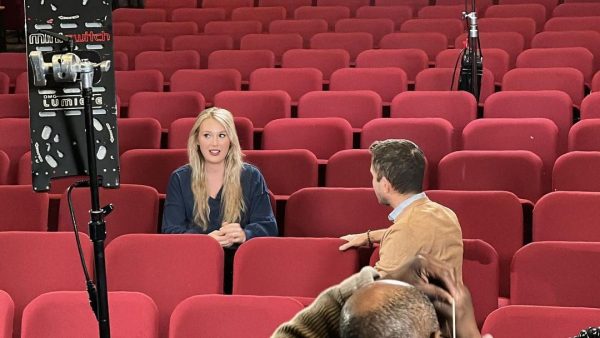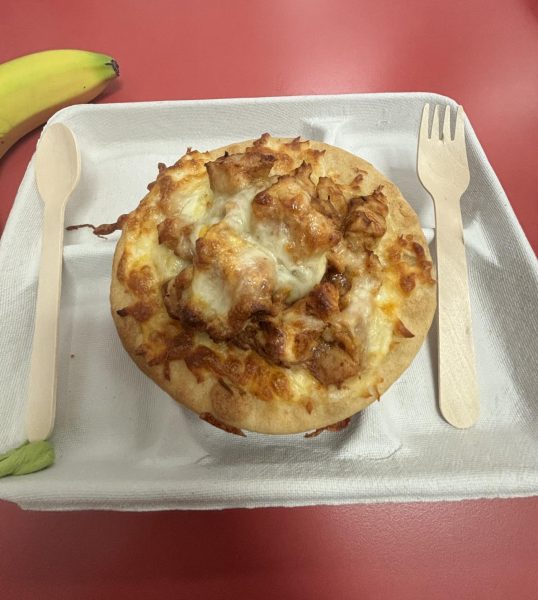Re-Writing the Past
Schools attempt to right their wrongs through renaming and reimbursement
J.E.B. Stuart fought through America’s bloodiest war wearing the confederate flag over his heart. Georgetown University sold 272 slaves to keep its classrooms operating in 1838. Route one, commonly known as Jefferson Davis highway enables millions of Americans to travel along the names of the confederacy as it is named to honor the Confederate President.
So, what’s in a name? An estimated 12.5 million slaves arrived to the new world between the early 1500s and the mid 1800s but many of their names are not known. On the contrary, nearly 200 schools and centers in the United States are dedicated to honor confederate civil war leaders and many famed sports teams use racial slurs to represent elite athletes.
In the local vicinity, J.E.B. Stuart High School, named to honor the Confederate States Army general, has not come to a conclusion over revising it controversial name.
The work group tasked with the naming challenge has until June 2017 to come up with recommendations for the board even though the decision to officially rename hasn’t been declared.
It is estimated that rededicating the school would cost the county nearly $700,000 in total, and money is already tight in the county, as seen through FCPS’s recent monetary crisis.
“I think you can remember the past through a proper historical context, such as museums and markers at the side of the road but I think when the government gets involved in using street names, school names and other things that is going a little too far,” said social studies teacher, Stratton Shartel. “I am in favor of renaming the school buildings and some of the others but I know that there’s a point in which you can’t do it all.”
It is a split panel over the necessity of changing names. Some believe that the name is a way to remember the past and that renaming would deprive students that chance to see how far the nation has advanced, whilst others see it as a poor way to represent one of the counties most diverse student bodies.
Although progress is slow at J.E.B. 8 miles south, Alexandria, a city widely known for its many confederate named streets and statues unanimously voted on Saturday Sept. 17 to change the name of Jefferson Davis Highway, otherwise known as route one. The highway honors a confederate soldier and politician, and although it is an important part of American history many believe that he shouldn’t be remembered in such a heroic way.
Although it has been agreed upon that the name needs to be changed, the alteration is not happening overnight as approval from the General Assembly is required before any rash and final decisions can be made.
“I don’t know what they could change the name to, and I’d imagine that will be a great debate,” said senior Julia Sheehy. “I just hope that whatever name they choose can stand the test of time.”
Along with changing the roadway name, the city has concluded to move its 7-foot-tall confederate statue. The ‘Appomattox’ statue currently sits at the cross section of Prince and Washington street and after an elongated public hearing it was finally decided that the statue should be moved to a history museum on the coinciding block.
“Sometimes it seems as if the wrong people get all the glory. Moving the statue will be difficult, but it seems as if that is the best option,” said senior Sabrina Huynh. “Plus it’s not going to be destroyed, just moved, so the public will still have the opportunity to see and learn from it.”
The council has also decided to reevaluate the naming of 30 plus streets after confederate combat heroes. However, that will be a larger challenge because of the difficulty of proving that certain streets are named after war members and not unrelated local families.
Street name changes will be handled on a case-by-case basis and citizens will have to begin petitions in order to be recognized by the city. Although it is not the most direct and time efficient way to achieve change, it is a starting point and leaves the door open for edits in the future.
“Revising the titles of every school and street wouldn’t be very cost or time effective,” Sheehy said. “I think changes would be beneficial but a timely method of action should be developed first.”
Words possess great power and the public acknowledgement of the people who inflicted pain and racist opinions versus those who endured and suffered has become a large social epidemic, and Georgetown University has found itself in the midst of it.
Georgetown, which is one of the nation’s oldest universities, was established in 1789 and has come under recent scrutiny due to a dark revelation from it’s past: the possession of slaves.
“Educational institutions are looked up to for their prestige and honor so to discover that one of the nation’s oldest schools had ignored this momentous fault in its history is very sad,” said Sheehy. “I’m glad [Georgetown is] finally facing its past.”
It is proven that 272 slaves were sold in 1838 to produce a profit of $115,000 for the university, although it is assumed that the school owned upwards of 400 slaves. The money produced from the sale prevented Georgetown from closing it’s doors and payed off the university’s looming debt.
“[Georgetown] recognize[s] the need to reconcile a painful part of [it’s] history; our participation in the institution of slavery and the benefit we received from the sale of 272 enslaved children, women and men from Jesuit plantations in Maryland in 1838,” said President of Georgetown, John DeGioia in a public speech.
The fact that the university owned slaves is nothing that can be changed, however Georgetown is looking for ways to compensate for it’s unjust past.
DeGioia announced in his public apology speech that the school is looking to provide preferential acceptance to the descendants of not only the 272 sold slaves but to any slave whose work benefitted the university. The preferential treatment will be similar to that of the children and grandchildren of alumni.
According to one model, created by a scientist at the Massachusetts Institute of Technology, which explores how populations expand and multiply, it is estimated that there are between 12,000 and 15,000 descendants of the original 272 sold slaves.
“I think [offering tuition money in addition to preferential treatment] is something to consider but I’m not sure, I would have to learn more about it before I decided whether it was something definitely to do or not,” Shartel said.
Although school acceptance may be influenced, DeGioia’s plan does not include special scholarship opportunities or financial aid, despite being suggested by the university committee.
In addition to the possibility of positively influenced admittance, the school has announced plans to create an institution for the study of slavery and to display a memorial for the slaves whose inhumane sale benefited the school.
Two campus buildings will also be rededicated. One to an African-American professor, who was also a member of a Catholic religious order, and another to an enslaved African-American man.
The renaming of the buildings to honor those who struggled instead those who thrived is something which is not often seen and is a trend that many people are working to change. In the past few years, the push for new names of schools, roads and other public tax funded properties nationwide has never been larger as citizens petitions and protests urge immediate change.
“It’s a step towards confronting the past, something that was wrong and that we know was wrong now and while it can never completely undo what happened it’s a good first step,” said Shartel.
Remembering and reflecting for those who anonymously suffered isn’t always enough, sometimes it is what’s in a name.

Senior, Teagan Foti, has been a part of the A-Blast staff for 3 years. Her prior positions include being a News editor and staff writer. When she isn’t...








